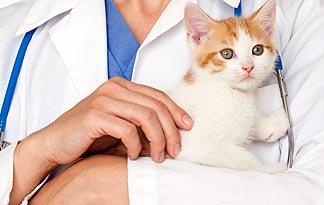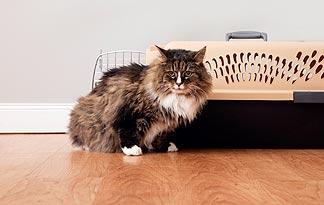Unique Gifts for Veterinarians You Can Buy
If you are an animal parent, you doubtless agree that your veterinarian is indispensable! In that case, you might want to make their lives sparkle by getting them thoughtful veterinarian gifts!
Whether the animal doctor in your life is celebrating a special occasion or just saved your pet’s life, a little gift could go a long way.
Best Gift Ideas For Veterinarians:
Depending on how well you know them and the kind of relationship you have, there is something here for everyone! Take a look and discover some of the most unique Vet gifts for the veterinarians in your life.
Heart & Stethoscope Funny Fill Line Veterinarian Wine Glass
After a long, hard day of saving lives, a vet needs to kick back and unwind. How about getting them on the right track with one of these innovative wine glasses?
Veterinarian Candle
Make your vet’s day everyday with this thoughtful scented candle. The message on the jar is enough to draw on any veterinarian’s heartstrings.

Things to Bring to Your Veterinary Appointment
Going to the veterinarian for a wellness exam every year (or more often for older pets) is the best way to keep your pet healthy through vaccines and preventive medication. We have compiled a list of the ten most common things you should bring to your vet visit. Often getting everyone in the car and to the vet office is a task in itself
Bring all veterinary medical records. Even if you have don’t have detailed copies, we can call your former office to request your pet’s complete record. This gives us the best biography of your pet’s health.
Bring your current identification, such as a driver’s license. Current identification is needed for a variety of reasons.
Bring any medications you are giving to your pet. These include flea medication, vitamins, and supplements. Our staff can evaluate the medications, check dosing and expiration dates, and refill anything you need while you are here.
Please bring a stool sample to your appointment. Stool samples are needed for annual or biannual parasite testing. Stool samples that are collected within 24 hours are acceptable. For multi-cat households, a sampling from the litter boxes is acceptable.
If your pet has an appointment for a urinary issue, then it is essential for us to have a urine sample to test. We offer free urine collection kits- just stop in to get one! Otherwise, a clean plastic container with a tight-fitting lid is perfect. Simply slide the container into your dog’s urine stream and keep in fridge until your appointment. However, keep in mind after four hours urine can become contaminated. Therefore, a urine sample should be collected just before your appointment or brought right in after collection for testing. We also have urine collection kits for cats. Cats typically won’t urinate in a tray, so our feline kits have a non-absorbent litter. Simply clean out your litter box, replace your clay litter with ours, and collect in the morning.
Write down or take pictures of the food and treats you are feeding. Nutrition and pet weight is just one of many areas we will offer guidance.
If your pet is having a medical issue that is difficult to explain then try capturing it on video! Many symptoms, such as limping, can be difficult to observe while in the veterinary office.
Bring your pet’s favorite food and/or treats to your veterinary appointment. Coming to vet can be stressful, even for outgoing dogs. We even recommending withholding food for dogs or cats before appointments so that we can feed and help them relax. However, pets with medical issues like diabetes or geriatric pets should not so that we can feed and help them relax. However, pets with medical issues like diabetes or geriatric pets should not be fasted!
Please arrive 5-10 minutes early. We will review any changes to your contact information. Also, please b e aware that our section of 44th street is quite busy after 4 PM.
Lastly, bring a list of questions to ask your veterinarian. It’s easy to forget all the things you wanted to discuss when you’re here in the exam room.

IMPORTANT THINGS TO LOOK FOR IN A VETERINARIAN
I’m looking for a vet for my new pet. What should I be looking for?
Congratulations on your new family member. Choosing a vet for your pet is a big decision to make. You need to look for a clinic that not only meets your pet’s needs but caters for your needs too. Most people choose their nearest vet and whilst location is an important consideration, driving a few extra kilometers may be worth it to get the best care for your pet.
Facilities, veterinary expertise and the services offered do vary between clinics. For example, some clinics may have extensive diagnostic equipment which can result in faster diagnosis and treatment for your pet. Some clinics may be available 24/7, whilst others may be open for just a short time.
Are the clinic’s opening hours compatible with your schedule?
The clinic opening hours need to meet your needs. Do they open evenings and weekends? Do they charge extra for this service? Are house calls available?
What after hour emergency vet care do they offer?
Finding a veterinary clinic that provides emergency services is important as accidents do happen. Using a veterinarian that provides after hour care means that they have immediate access to your pet’s medical records which can lead to faster diagnosis and treatment in an emergency.
How do the veterinarians and staff treat you and your pet?
We all want calm, stress-free vet visits so making sure your pet is happy with the vet you choose is extremely important. It’s a good idea to visit the vet with your pet for a weight check and observe how the staff interact with the animals in their care. Are they approachable? Did they greet my pet? Did they seem knowledgeable and caring? Was my pet relaxed and calm?

Tips to Make Vet Visits Less Stressful for Your Cat
Anyone who has had the “pleasure” of taking a cat for a vet visit knows that it’s no picnic. It usually begins with a wrestling match to get the cat into a carrier. If you manage to survive with only a few scratches, consider yourself lucky. Then comes the “drive of doom,” where he will demonstrate his well-developed hissing and howling talents, followed by an excruciatingly long wait in the clinic’s lobby, where your cat will either retreat into the fetal position in the corner of his carrier or pace wildly within it, meowing at you in what sounds a lot like the feline version of profanity.
It’s no wonder that a recent survey revealed that two-thirds of cat parents take their pets to the vet less then once a year, in part because of “feline resistance” to the experience. It seems that cats have declared war on veterinary care. Unfortunately, it’s a war they’re winning handily.
One of the best things you can do for your cat is give him regular head-to-tail check-ups at home. Even if you don’t know what you’re looking for, simply getting him used to being handled will help enormously at the vet. What’s more, those home check-ups mean you’re more likely to notice a problem with your cat should one arise.
Another very important stress reducer is getting your pet is accustomed to being in a carrier. If he only gets into the carrier to see the vet, chances are he’ll resist it. Instead, create a link between the carrier and fond feelings by incorporating the carrier into your daily lives. Let your cat use it as a nap space and offer treats when he’s inside. You could also try occasionally leaving it open on the living room floor, incorporating it into playtime with your favorite feline friend.
Going to the vet is inevitably going to create some stress and anxiety in your cat. You can reduce this by offering plenty of love and affection before the trip. It may help calm you too; studies suggest that petting and playing with pets can reduce stress levels in humans. This is a great ritual for the hour before your vet visit. You and your pet are both going to need to be as chill as possible before getting into the car, which felines would probably call the “purring tank of terror,” if they were actually able to speak
The Life of a Veterinarian
What is it like being a veterinarian? Life as a veterinarian is rewarding, but challenging and demanding, is the answer from most vets. To be a vet, you must have a passion for or a clinical interest in animals, have great interpersonal skills, and possess a strong work ethic.
Advantages
You’ll be working with your passion
It is rewarding and fulfilling to diagnose, treat, and make animals feel better
Disadvantages
Animals will likely protest being taken to the vet’s office. You might get bitten, scratched, or kicked
Neglectful, difficult, or emotional human caretakers
Most people are inspired to go into the veterinary sciences because of their love for animals. In our interviews with pre-vet and veterinary students, a passion for animals or a childhood pet provided the spark in pursuing a career as a vet.
veterinarian and owner of Town Country Veterinary Services, shares a recent rewarding experience with a patient: ”Dolly is a 13 year old Dalmatian that we treated in January and February this year. She was so sick with an intestinal virus and got so weak that she couldn’t even stand. I was sure she would not survive. I worked very hard to save her and it all seemed for naught, but she finally slowly began to come around. This summer, I saw I saw her back to her normal active, happy self, and that was very rewarding.”